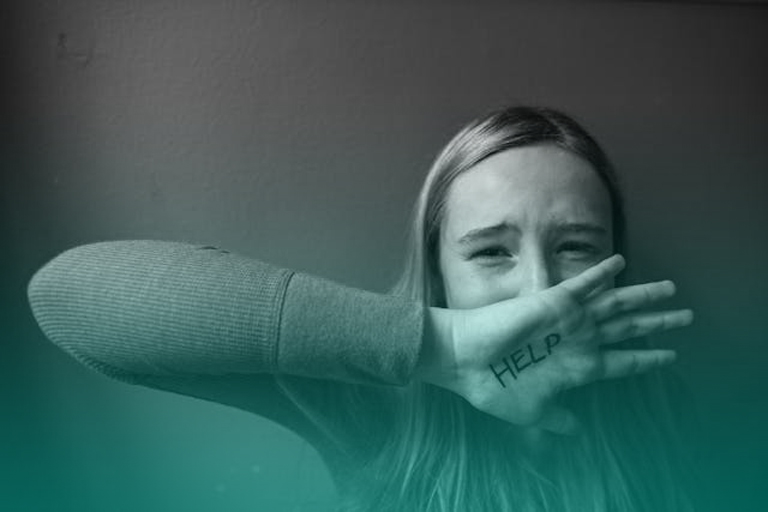Emotional abuse is a silent but pervasive problem that affects countless individuals. It can happen in any relationship, whether it be with a partner, family member, friend, or even a colleague. Despite its invisible nature, emotional abuse can have devastating effects on a person’s mental health and overall well-being. In this article, I will explore what emotional abuse entails, the signs and symptoms to watch out for, its impact on mental health, and most importantly, how to break free from its chains and rebuild a healthy life.
What is Emotional Abuse?
Emotional abuse is a form of psychological manipulation and control that seeks to undermine an individual’s self-esteem, autonomy, and sense of self-worth. It involves consistent patterns of behaviour aimed at exerting power and dominance over the victim. Unlike physical abuse, emotional abuse leaves no visible scars, making it difficult for outsiders to recognize and for victims to acknowledge.
Some common forms of emotional abuse include constant criticism, belittling, humiliation, and gaslighting, where the abuser distorts the victim’s perception of reality. Other tactics include isolation, controlling behavior, threats, and withholding affection or support. These actions erode the victim’s self-confidence and create a cycle of dependency on the abuser.
Signs and Symptoms of Emotional Abuse
Recognizing the signs of emotional abuse is crucial in order to break free from its toxic grip. It is not always easy to identify, as the abuser may manipulate and disguise their behavior. However, there are several red flags that can serve as warning signs.
Victims of emotional abuse may experience anxiety, depression, low self-esteem, and a constant feeling of walking on eggshells. They may become isolated from friends and family, as the abuser seeks to control their social interactions. Other signs include feeling constantly criticized, manipulated, or blamed for the abuser’s actions. It is important to trust your instincts and seek help if you suspect you or someone you know may be a victim of emotional abuse.
The Effects of Emotional Abuse on Mental Health
The impacts of emotional abuse on mental health cannot be underestimated. The constant psychological torment can lead to a range of mental health issues, including anxiety disorders, depression, post-traumatic stress disorder (PTSD), and even suicidal thoughts. The victim may develop a distorted self-image, believing they are worthless, unlovable, or deserving of the abuse.
Furthermore, emotional abuse can have long-lasting effects on the victim’s ability to form healthy relationships. The emotional scars can make it challenging to trust others, leading to difficulties in establishing and maintaining intimate connections. It is crucial to address the mental health consequences of emotional abuse and seek professional help to heal and regain control of one’s life.
Breaking Free from Emotional Abuse
Breaking free from the chains of emotional abuse requires courage, strength, and support. The first step is to recognize and acknowledge the abuse, even if it feels uncomfortable or scary. Reach out to trusted friends, family, or professionals who can provide the necessary support and guidance. Remember, you are not alone, and there are people who genuinely care and want to help.
Creating a safety plan is essential when leaving an abusive situation. This may involve finding a safe place to stay, contacting local support services, and documenting evidence of the abuse. It is important to prioritize your safety and well-being above all else.
Overcoming Emotional Abuse
Overcoming the trauma of emotional abuse is a journey that requires time and self-compassion. Seeking therapy from a qualified mental health professional can be incredibly beneficial in processing the emotions, rebuilding self-esteem, and learning healthy coping mechanisms.
Self-care is another crucial aspect of healing from emotional abuse. Engage in activities that bring joy and fulfillment, surround yourself with positive influences, practice mindfulness, and prioritize your physical and emotional well-being. Remember, you deserve love, respect, and happiness.
Ready to prioritize your mental well-being?
Building Healthy Relationships After Emotional Abuse
Rebuilding trust and forming healthy relationships after experiencing emotional abuse may seem daunting, but it is possible. Take your time to heal and establish a strong foundation of self-love and self-worth. Set healthy boundaries and communicate your needs and expectations clearly.
It is important to be cautious and observant when entering new relationships. Look for signs of respect, kindness, and open communication. Surround yourself with people who uplift and support you. Remember, you deserve to be in relationships that are based on mutual trust, love, and respect.
The Importance of Raising Awareness about Emotional Abuse
Raising awareness about emotional abuse is crucial to break the cycle of silence and provide support to those who are suffering. Education plays a vital role in recognizing and preventing emotional abuse. By understanding the signs and symptoms, we can intervene earlier, offer help, and potentially save lives.
It is important to promote healthy relationships and teach young people about consent, respect, and boundaries. By fostering a culture that rejects emotional abuse, we can create a safer and more compassionate society.
Providing Education and Support for Those Affected by Emotional Abuse
Support networks and resources are essential for those affected by emotional abuse. Organizations and helplines dedicated to assisting victims of abuse can offer guidance, emotional support, and practical advice on how to escape abusive situations. Additionally, raising funds for these organizations can help provide the necessary resources to empower survivors and continue the fight against emotional abuse.
Conclusion
Emotional abuse is a deeply harmful form of abuse that can have lasting effects on an individual’s mental health and well-being. Recognizing the signs and symptoms is crucial in order to break free from its grip and begin the healing process. By raising awareness, providing education, and offering support, we can create a society that rejects emotional abuse and empowers survivors to reclaim their lives. Remember, you deserve to be treated with love, respect, and kindness.

 Gaston Molina
Gaston Molina



 Let me support you in finding what’s going to keep you going on your journey!
Let me support you in finding what’s going to keep you going on your journey!
Was this helpful?